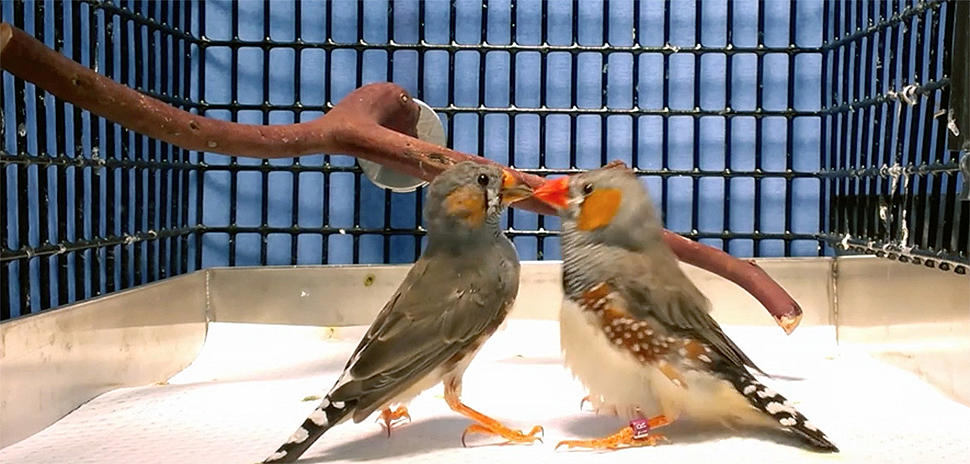Researchers at UT Southwestern Medical Center’s Peter O’Donnell Jr. Brain Institute are using songbirds to “watch” how the brain learns.
By mapping the the neural processes involved as zebra finches learn mating songs, the scientists hope they will be able use what they learn to target specific genes that disrupt speech in patients with autism or other neurodevelopment conditions, according to a UTSW release.
“Zebra finches are a great model system because they learn one vocalization when they’re young and they perfect it through adolescence.”
Dr. Todd Roberts
“Zebra finches are a great model system because they learn one vocalization when they’re young and they perfect it through adolescence. Our lab studies the neural circuits that allow them to both learn this behavior when they’re young and expertly maintain it as adults,” said Dr. Todd Roberts, an assistant professor of neuroscience with the O’Donnell Brain Institute, who oversees the bird lab where a team of researchers monitor a screen that shows the rhythmic activity in a bird’s brain cells as it recalls the memory of a song.
The scientists watch and sometimes help the brain learn, according to the release.
Funding for the study came from the White House’s signature BRAIN Initiative.
Songbirds are the best animal to use because they share many of humans’ stages of vocal development, UTSW said.
Zebra finches hear their parents sing early in their lives, eventually memorizing the notes. After practicing tens of thousands of times, the young birds learn to replicate their parents’ behavior.
Both humans and songbirds share the FoxP gene, and part of the research involves deactivating and re-activating a type of the gene that enables the bird to learn song, the release said. Roberts hopes to gain knowledge of how effectively vocal learning can be restored after developmental disruptions in song learning.
Delivering what’s new and next in Dallas-Fort Worth innovation, every day. Get the Dallas Innovates e-newsletter.






























